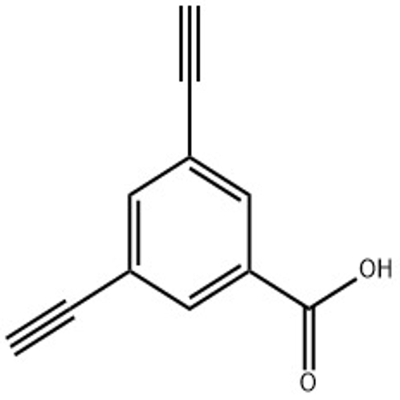-
Categories
-
Pharmaceutical Intermediates
-
Active Pharmaceutical Ingredients
-
Food Additives
- Industrial Coatings
- Agrochemicals
- Dyes and Pigments
- Surfactant
- Flavors and Fragrances
- Chemical Reagents
- Catalyst and Auxiliary
- Natural Products
- Inorganic Chemistry
-
Organic Chemistry
-
Biochemical Engineering
- Analytical Chemistry
-
Cosmetic Ingredient
- Water Treatment Chemical
-
Pharmaceutical Intermediates
Promotion
ECHEMI Mall
Wholesale
Weekly Price
Exhibition
News
-
Trade Service
2,3-Dicyanopyrimidine, also known as DCP, is a versatile compound that has found numerous applications in the chemical industry.
From pharmaceuticals tomaterials science, DCP has proven to be a valuable building block for the development of new products and processes.
One of the most significant applications of DCP is in the synthesis of pharmaceuticals.
DCP derivatives can be used as intermediates for the production of a wide range of drugs, including antibiotics, anti-inflammatory drugs, and anti-cancer agents.
For example, the anti-malarial drug primaquine and the anti-cancer drug irinotecan are both derived from DCP.
In addition to its use in pharmaceuticals, DCP is also used in materials science.
DCP derivatives can be used to produce polymers with unique properties, such as high thermal stability and mechanical strength.
These polymers are used in a variety of applications, including electrical and electronic components, automotive parts, and packaging materials.
DCP is also used in the production of dyes and pigments.
DCP derivatives can be used as precursors for the synthesis of a variety of dyes, including azo dyes, anthraquinone dyes, and triarylmethane dyes.
These dyes are used in a range of applications, including textile dyeing, printing ink, and plastics coloration.
Another application of DCP is in the field of organic electronics.
DCP derivatives can be used to produce organic semiconductors, which are used in the production of organic light-emitting diodes (OLEDs) and organic field-effect transistors (OFETs).
These devices are used in a variety of applications, including flat-screen displays, smartphones, and wearable technology.
In addition to these applications, DCP is also used in the production of specialty chemicals.
For example, DCP derivatives can be used as corrosion inhibitors, disinfectants, and catalysts.
These specialty chemicals are used in a range of industries, including oil and gas, water treatment, and food and beverage processing.
Overall, 2,3-Dicyanopyrimidine and its derivatives have proven to be versatile building blocks for the chemical industry.
From pharmaceuticals to materials science, DCP has a wide range of applications that are driving innovation and growth in the industry.
With ongoing research and development, it is likely that DCP will continue to play an important role in the production of new chemicals and materials in the years to come.







